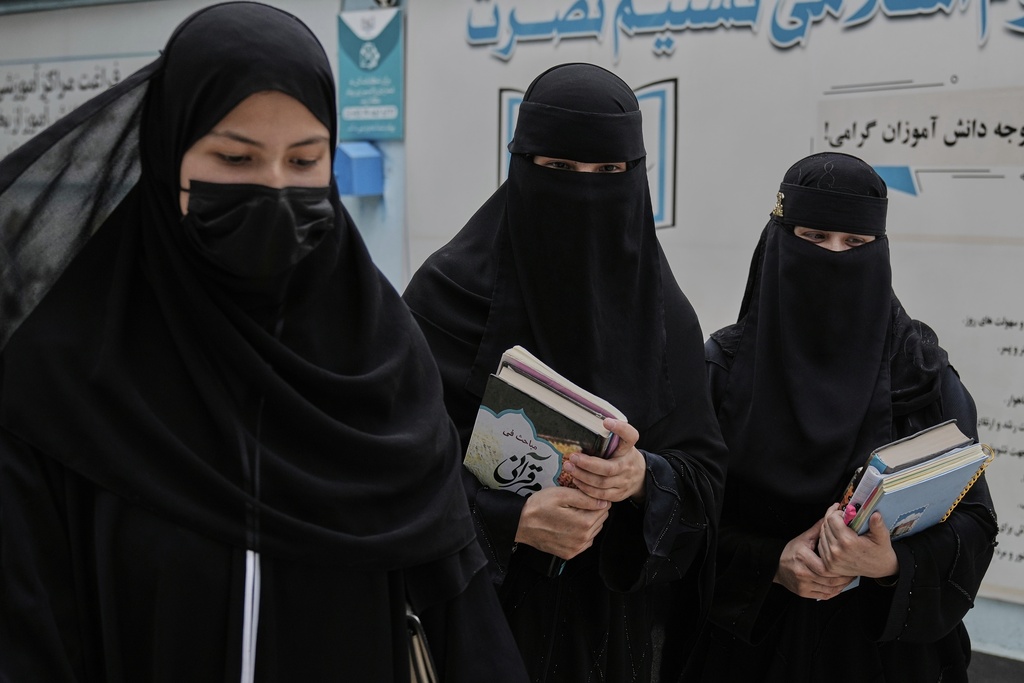
The Struggle for Education in Afghanistan
In the heart of Kabul, 13-year-old Nahideh spends six hours a day after school working in a cemetery, collecting water from a nearby shrine to sell to mourners. Her dream is to become a doctor, but she knows that this dream is out of reach. As the next school year approaches, she will be enrolling in a madrassa, a religious school, to study the Quran and Islam—though her aspirations extend far beyond what the school offers.
Nahideh is in the final grade of primary school, which is the highest level of education available to girls in Afghanistan under the current Taliban government. Three years ago, the regime banned girls from attending secondary schools and universities, making Afghanistan the only country in the world to implement such a policy. This ban is part of a broader set of restrictions on women and girls, affecting everything from their clothing choices to their freedom of movement and social interactions.
With no access to higher education, many girls and women are turning to madrassas as an alternative. These religious schools offer a different form of learning, focusing primarily on Islamic teachings. According to Zahid-ur-Rehman Sahibi, director of the Tasnim Nasrat Islamic Sciences Educational Center in Kabul, the closure of schools has led to a surge in interest in madrassas.
The center, which serves about 400 students ranging in age from 3 to 60, is predominantly attended by women. Students study the Quran, Islamic jurisprudence, the sayings of the Prophet Muhammad, and Arabic, the language of the Quran. Sahibi notes that even before the school closures, many Afghans attended madrassas, but the demand has increased significantly since then.
While there are no recent official figures on the number of girls enrolled in madrassas, officials report that the popularity of these institutions has been growing. Last September, Deputy Minister of Education Karamatullah Akhundzada stated that at least 1 million students had enrolled in madrassas over the past year alone, bringing the total to over 3 million.
Learning the Quran
Inside the Tasnim Nasrat center, students sit on the carpeted floor, tracing lines of Arabic script in their Qurans. All the young women wear black niqabs, leaving only their eyes visible. For many, studying the Quran is seen as a fundamental duty. Faiza, a 25-year-old student who enrolled five months ago, believes it is essential for Muslims to understand the Quran’s teachings.
“I would have preferred to study medicine,” she said. “But I know that is now impossible. Still, I hope that if I show dedication to my religion, I might eventually be allowed to continue my studies.”
Faiza’s teacher, Sahibi, expresses a desire for women to have access to both religious and modern education. He believes that while religious sciences are important, so too are other subjects like math and science. “Islam encourages the pursuit of modern knowledge because it is necessary for society,” he said.
A Controversial Ban
The ban on female secondary and higher education has sparked controversy within Afghanistan, even among some members of the Taliban. In January, Deputy Foreign Minister Sher Abbas Stanikzai publicly criticized the ban, stating there was no justification for denying girls and women access to education. His remarks were met with disapproval from the Taliban leadership, and he is now reportedly on leave and has left the country.
Despite this dissent, the impact of the ban remains severe. UNICEF Executive Director Catherine Russell warned that if the ban continues until 2030, over four million girls will be deprived of their right to education beyond primary school. She described the consequences as catastrophic, affecting not only the girls themselves but also the health system, economy, and future of Afghanistan.
The Role of Religious Education
In a deeply conservative society, the teachings of Islam hold significant importance. Mullah Mohammed Jan Mukhtar, who runs a boys’ madrassa north of Kabul, believes that learning the Quran is the foundation for all other sciences. “If someone first learns the Quran, they will be able to learn other sciences much better,” he said.
His madrassa, which started with 35 students five years ago, now has 160 boys aged 5 to 21. It also offers limited classes in English and math, along with an affiliated girls’ madrassa that currently has 90 students. Mukhtar emphasizes the importance of religious education for women, believing it helps them understand their rights and responsibilities within the family.
As Afghanistan continues to face uncertainty, the role of madrassas in providing education to girls and women remains a critical issue. While some see them as a means of preserving cultural and religious values, others argue that limiting education to religious studies hinders the development of a more inclusive and progressive society.